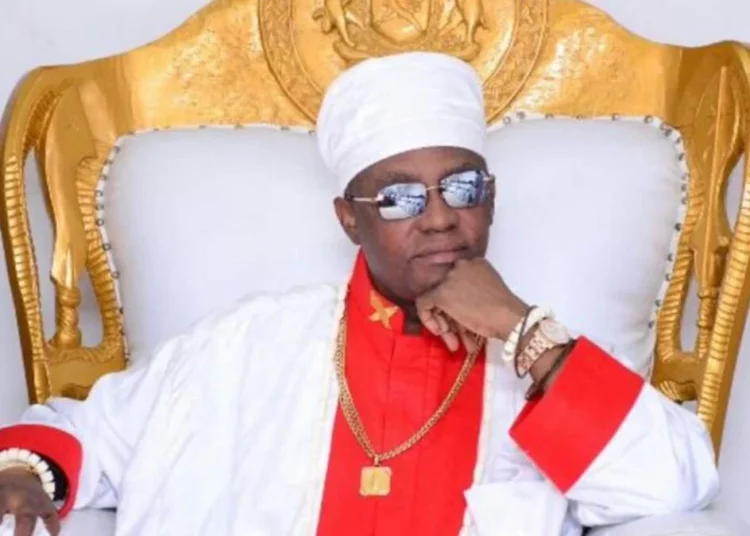The Benin Traditional Council has said the aim of the Iyaloja concept’s introduction to Edo State is yet to be determined.
It said if it were a national thing, then Iyaloja of Lagos (or Nigeria) must extend the concept to the other states in Nigeria before it could believe its authenticity and motive.
This was contained in a statement issued on behalf of the Benin monarch, Oba Ewuare II and signed by six top palace chiefs.
The statement queried whether an Edo woman could be made the Iyaloja of Lagos or of Nigeria?
“Can this concept of Iyaloja be extended to Aba, Owerri, Keffi, Kaduna, Kano, Sokoto and other parts of Nigeria?”
The BTC said it would have advised the Edo State government on salient traditions if it had been consulted earlier on the Iyeki (market leader) title.
It warned that any deviation from the age-old cultural system of Iyeki might lead to breach of the peace.
Market women had visited the Benin Monarch’s palace to thank him for insisting that the Iyaloja title was alien to Benin culture.
Frowning at the use of trade associations to run an open market and play partisan politics, the statement said the twin factors were antithetical and inimical to the essence of market tradition in Benin culture.
It expressed reservations about market women’s tendency to allow themselves to be used as political pawns in the political field under the aegis of Market Associations in Edo State, even as it appealed to the market women and the politicians behind them to eschew dragging the sanctity of the Oba’s name into their partisan political affairs.
According to the statement, “The Palace feels that if we were duly consulted about what the tradition says about IYEKI ROLE in Benin tradition, all the ensuing controversy or tension would have been avoided.
“Benin Traditional Council wishes to reiterate that there is nothing like Iyeki general in Benin, which this lyaloja concept seems to imply. In Benin culture, lyeki emerges among women in the market. After being chosen by the market women, she is brought to the Palace for confirmation.
” Once confirmed, they are told to go ahead and install her as the lyeki of the market. The Palace never chose anybody as lyeki. It is the market women who do that. Every lyeki is independent of the others. Every lyeki is culturally, spiritually and religiously tied to the Palace.
“There is a direct functional relationship between Lyeki and the Palace. Just as there is no honorary chieftaincy title in Benin culture, there is also no honorary lyeki title in Benin culture. Every lyeki has a spiritual function she performs for the Palace and the market’s well-being. We strongly suggest that Lyeki’s function should not be politicised.
“We hope the market women, headed by their Iyekis, would have learned their lesson now and know their traditional connection with the Palace and what is expected of them. And remember to watch the mood of the Palace and go with it.
“The Palace feels that if we were duly consulted about what the tradition says about Iyeki’s role in Benin tradition, all the ensuing controversy or tension would have been avoided.
“We do not know the aim of introducing this Iyaloja concept to Edo State. If it is a national thing, then Iyaloja of Lagos (or Nigeria) must extend this concept to the other states in Nigeria before we can believe its authenticity and motive.
“We also have a question: Can an Edo woman be made the Iyaloja of LAGOS or Nigeria? Can this concept of Iyaloja be extended to Aba, Owerri, Keffi, Kaduna, Kano, Sokoto and other parts of Nigeria?”





